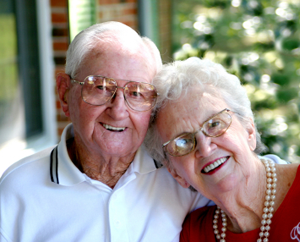Gluten Free
What does following a gluten-free diet mean? That you're embarking on an easy diet with a wide range of health-promoting effects. Instead of dwelling on what you’re giving up, consider that you’re going to enjoy a whole new world of delicious food options to meet your special dietary needs. You’ll be eating seasonally, choosing more fresh fruits and vegetables, focusing on meats, seafood, poultry, legumes, lentils, corn, and rice, and discovering fascinating ancient grains such as quinoa, amaranth, and millet. You’ll be able to eat potatoes, eggs, most cheeses, even chocolate (!)—and enjoy them without guilt because you’ll be taking good care of your body. In fact, you’ll probably end up eating—and feeling—better than ever!
Visit this page for more information about living Gluten Free
---
We carry a large variety of gluten free items, the brands listed below represent just some of the offerings we carry















More Diets
- By Alan R. Gaby, MD
How Do I Check My Bone Mineral Density?
Thinning of the bones (osteoporosis) is a major epidemic in Western societies, especially among women after menopause. And since osteoporosis does not cause any symptoms, many people are unaware that they are losing bone mass until they break a bone. Keeping an eye on bone health is especially important for people who may have osteopenia—indications of bone loss but not full osteoporosis.
Bone mineral density is measured several ways, and in different places in the body
What types of tests are there?
Bone mineral density is measured several ways, and in different places in the body. For example:
- Hip and spine. One of the most widely used bone mineral density tests involves taking a special type of x-ray of the hip and spine, known as dual-energy x-ray absorptiometry (sometimes abbreviated to DEXA or DXA).
- Heel. Though they may not be as reliable, as the more involved tests of the hip and spine, DEXA measurements of the heel are often conveniently available in some pharmacies and doctors' offices.
In any case, the lower your bone mineral density is, the thinner your bones are, and the greater your risk is of breaking a bone.
How are the results reported?
Bone mineral density measurements are usually reported using two measurements:
- T-scores. The T-score compares your bone mineral density with that of healthy young adults of the same gender.
- Z-scores. This score compares your bone mineral density with that of a person of the same age and gender. Z-scores are not typically used to diagnose osteoporosis, but, rather, let you know that you may be losing bone more rapidly than normal for your age.
What do my scores mean?
For both T-scores and Z-scores, a zero score means that your bone density is average (50th percentile) with regard to the comparison group. (A number above zero means you are above average, or have higher than average bone density, and a number below zero means you are below average, or have a lower bone density than average.)
Osteoporosis and osteopenia should be diagnosed by a doctor. However, here is how the T-scores may be interpreted:
T-Scores
- +1.0 through +4.0 = High-Normal Bone Mass
- -1.0 through +1.0 = Normal Bone Mass
- -2.5 through -1.0 = Osteopenia
- -2.5 through -4.0 = Osteoporosis
A T-score below zero is not necessarily a concern for middle-aged or elderly people, because it is normal for older people to have lower bone mineral density than young adults.
How do I know if I am at risk for osteoporosis?
Fortunately, bone mineral density tests are available that can tell you whether you have osteoporosis and how severe it is. If a test reveals that you have experienced bone loss, you can, with the help of your doctor, take measures to reduce your risk of fractures. Steps include improving diet, taking nutritional supplements, exercising, and (when appropriate) taking medication.
Who should have their bone mineral density checked?
It is commonly recommended that all women over age 65 have their bone mineral density measured. Others who should have the test include:
- Postmenopausal women under age 65 who have one or more risk factors for osteoporosis (such as cigarette smoking or a family history of osteoporosis), or a history of a fracture after minimal trauma
- Adults receiving long-term treatment with steroid medication (longer than three months)
- Men with a current or previous fracture, or with a risk factor for osteoporosis such as low testosterone or alcoholism
- People with diseases known to be associated with osteoporosis, including rheumatoid arthritis, diabetes, celiac disease, and chronic lung disease
What else can I do to protect my bones?
If you have low bone mass or osteoporosis, taking certain steps may help slow or reverse bone loss. These include:
- Diet. Avoid calcium-leeching beverages such as colas, and avoid drinking alcohol excessively.
- Nutritional supplements. In addition to calcium and vitamin D, discuss with your doctor whether taking other bone-building nutrients are right for you. These may include magnesium, vitamin K, B vitamins, zinc, copper, manganese, boron, silicon, and strontium.
- Weight-bearing exercise. Exercises that resist body weight, such as running, jogging, brisk walking, and weight lifting, often help rebuild bone or slow bone loss. Ask your doctor to help you determine which of these types of exercise you can safely undertake.










